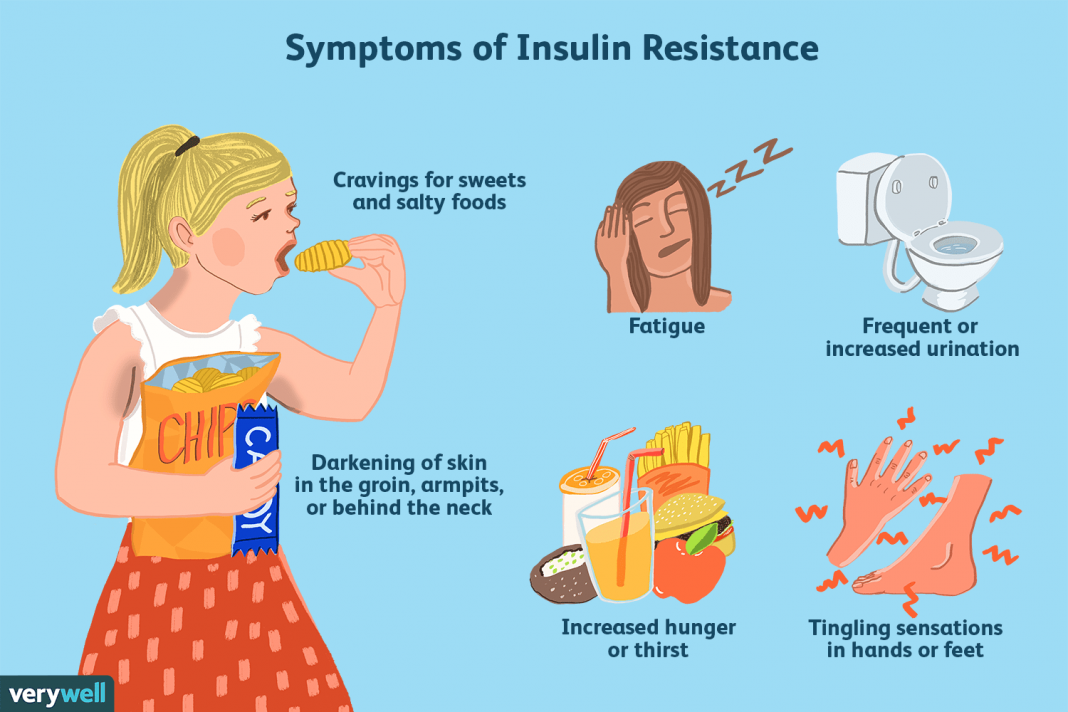High insulin, also called hyperinsulinemia, is a condition in which the pancreas produces large amounts of insulin, a hormone responsible for keeping blood sugar levels normal. This condition is usually caused by insulin resistance in which the body does not respond well to the effects of this hormone, causing the pancreas to produce more insulin in an attempt to regulate the amount of glucose in the blood.
High insulin usually does not cause symptoms, but when blood sugar levels fall below normal levels, it can lead to excessive hunger, constant cravings for sweets and sugars, difficulty concentrating, or excessive tiredness, for example. Find out what normal blood sugar levels are.
It is important to consult the endocrinologist or general practitioner whenever symptoms appear, so that the diagnosis of high insulin can be made and the most appropriate treatment started, which can be done with the use of anti-diabetic drugs, physical exercise and changes in diet.
Main symptoms
High insulin may not cause symptoms and can be perceived through some signs such as weight gain for no apparent reason, constant craving for sweets and sugars, intense or frequent hunger, even after eating.
However, too much of this hormone in the bloodstream can lower blood sugar levels and lead to symptoms of hypoglycemia such as:
- Difficulty concentrating;
- Lack of focus or motivation;
- Anxiety, irritability or panic;
- Excessive tiredness;
- Mental confusion;
- Heart palpitation;
- Lack of coordination of movements;
- Dizziness;
- Seizures;
- Fainting.
Also, in children, some signs that insulin is high are difficulty breastfeeding or feeding, excessive irritability, discouragement, or lack of energy.
In the presence of these symptoms, medical help should be sought immediately or the nearest emergency room in case symptoms of hypoglycemia crisis appear as it can lead to a coma and be life-threatening. Know what to do in a hypoglycaemia crisis.
Possible causes
High insulin is mainly caused by insulin resistance caused mainly by obesity, overweight, lack of physical activity or a diet high in sugars and carbohydrates, leading to increased blood glucose and insulin production by the pancreas in an attempt to regulate insulin levels. sugar in the body. This insulin resistance can lead to the development of type 2 diabetes. Understand better what type 2 diabetes is and its causes.
Also, although it is rare, high insulin can occur because of more serious conditions such as insulinoma, a type of tumor in the pancreas, or because of increased multiplication of cells in the pancreas, in a condition called nesidioblastosis.
What to do
High insulin should be treated by the endocrinologist or general practitioner, according to its cause, which in cases of more severe conditions such as insulinoma or nesidioblastosis, surgery to remove the tumor from the pancreas or complete removal of this organ may be indicated. Find out how the treatment of insulinoma is done.
In the case of insulin resistance, the treatment recommended by the doctor aims to regulate blood sugar levels, with the practice of physical activities such as walking or swimming, at least 3 times a week, in addition to a balanced diet low in sugar and carbohydrates, guided by a nutritionist.
In addition, your doctor may recommend the use of anti-diabetic drugs when changes in diet and exercise are not effective in controlling blood sugar levels.
